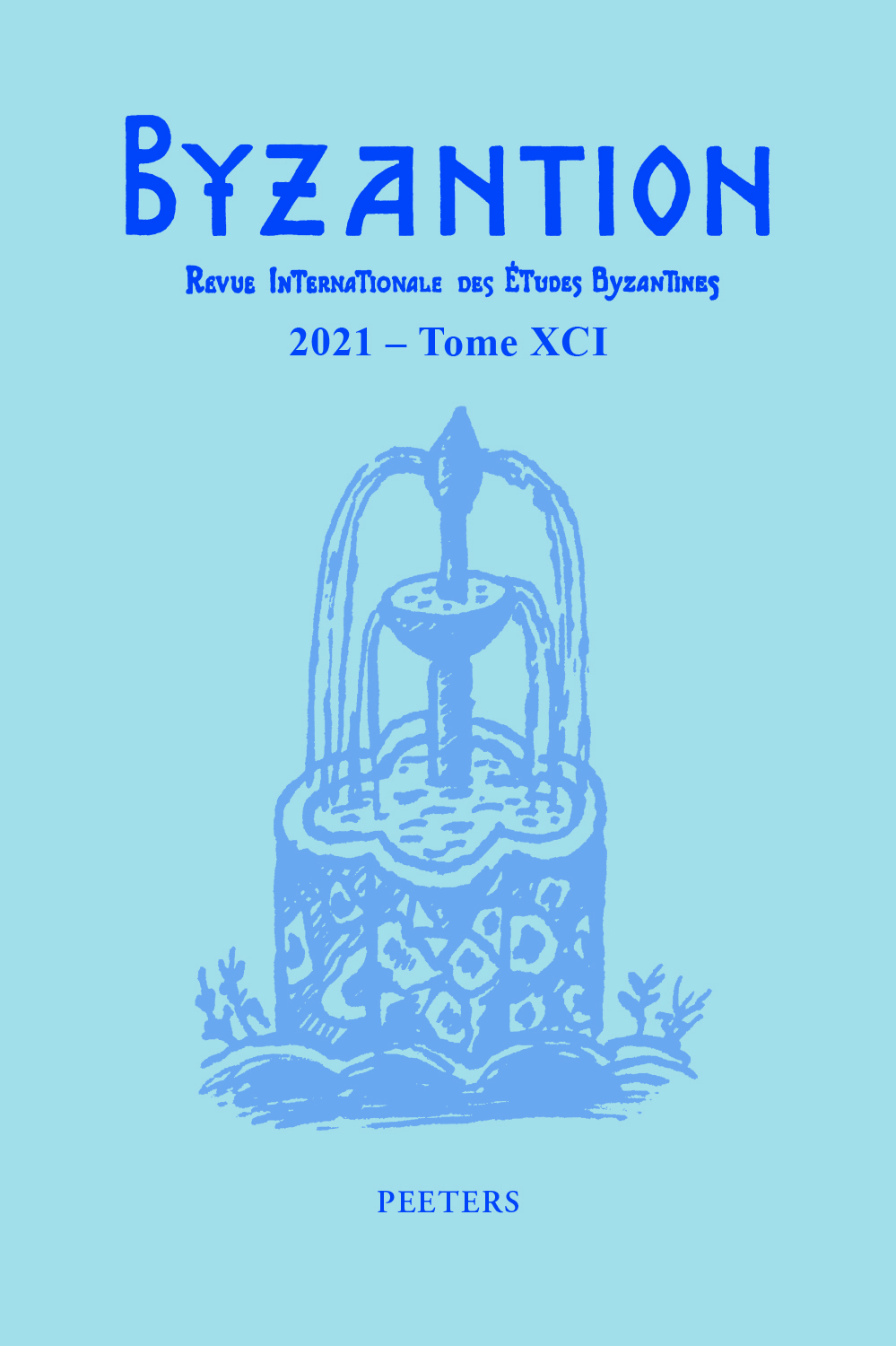 previous article in this issue previous article in this issue | next article in this issue  |

Preview first page |
Document Details : Title: La voix de Dieu Subtitle: Èthos divin et rythme de prose dans le Thrène de la Ville de Nicétas Chôniatès Author(s): KUTTNER-HOMS, Stanislas Journal: Byzantion Volume: 89 Date: 2019 Pages: 297-329 DOI: 10.2143/BYZ.89.0.3287074 Abstract : The Byzantine historian Niketas Choniates (c. 1155-c. 1217) wrote in his History a chapter called by marginalia «Thrènos tou poleôs», the Funeral Oration for the City. Niketas laments over the capture and the sack of Constantinople by the soldiers of the Fourth Crusade and their Venetian seafarers. This text contains both aspects of a monody and of a homily: Niketas tries to explain God’s designs behind the horrifying attack at the very heart of the Roman Empire, while building up a theodicy in order to give hope to his readers-listeners. The Funeral Oration for the City is woven with quotations and allusions to the Old Testament, among which the prophets which relay God’s voice hold a particular place. But without any precision about who is speaking, is there any mean for the audience or the reader to recognize the different voices within the text? Was it possible, as it was for the public of the Ancient theatre, to distinguish the various characters through their èthos, even if the èthos was deprived of the costume, the mask, and part of the staging? In this paper we will try to show how prose rhythm builds different èthè, mainly God’s voice which seems, at first sight, to be nowhere. |
|


